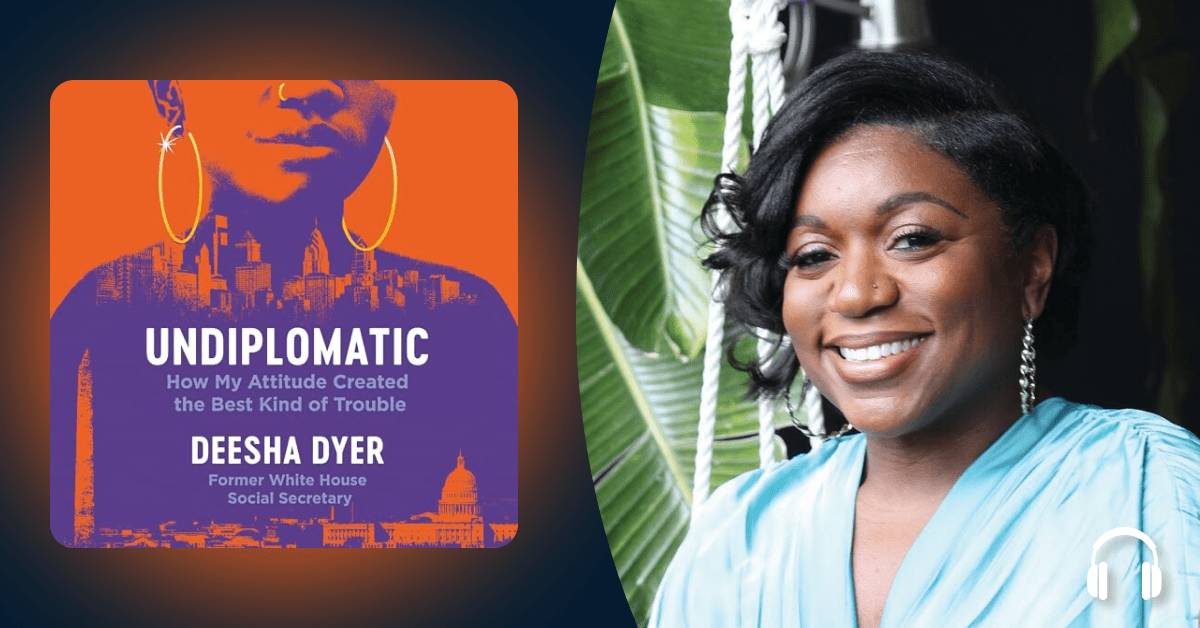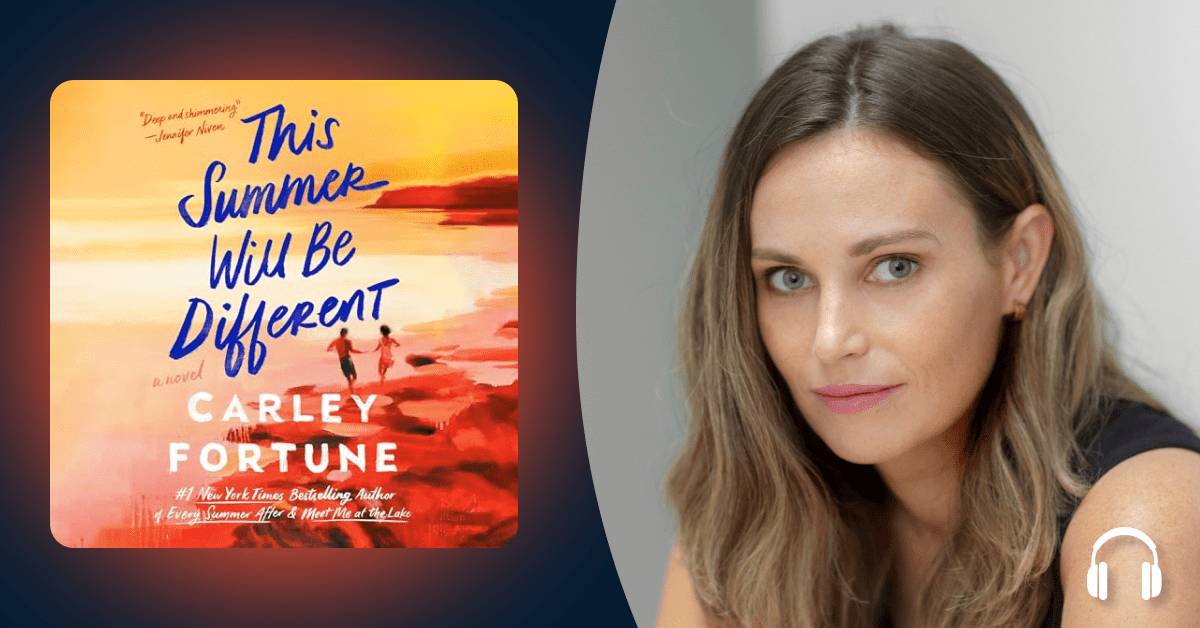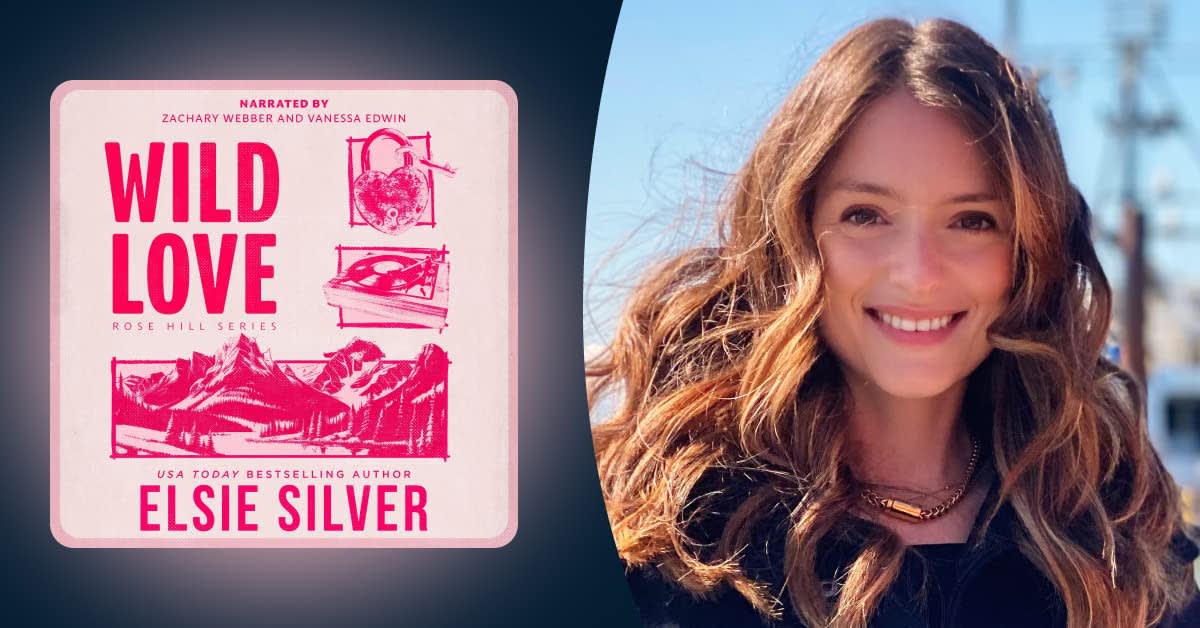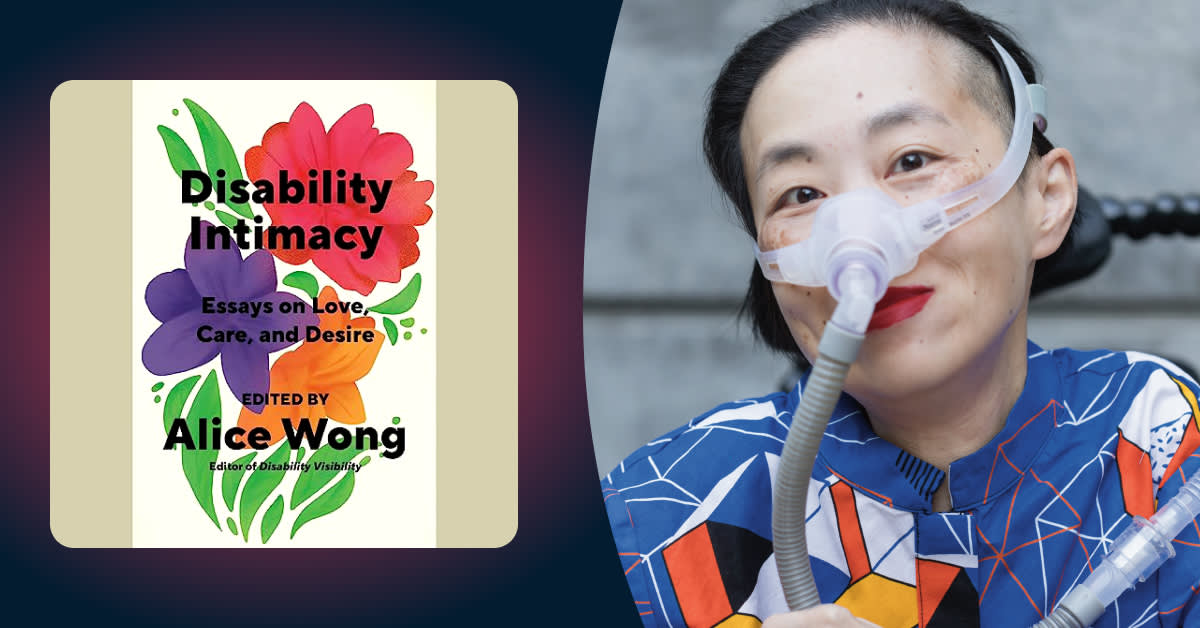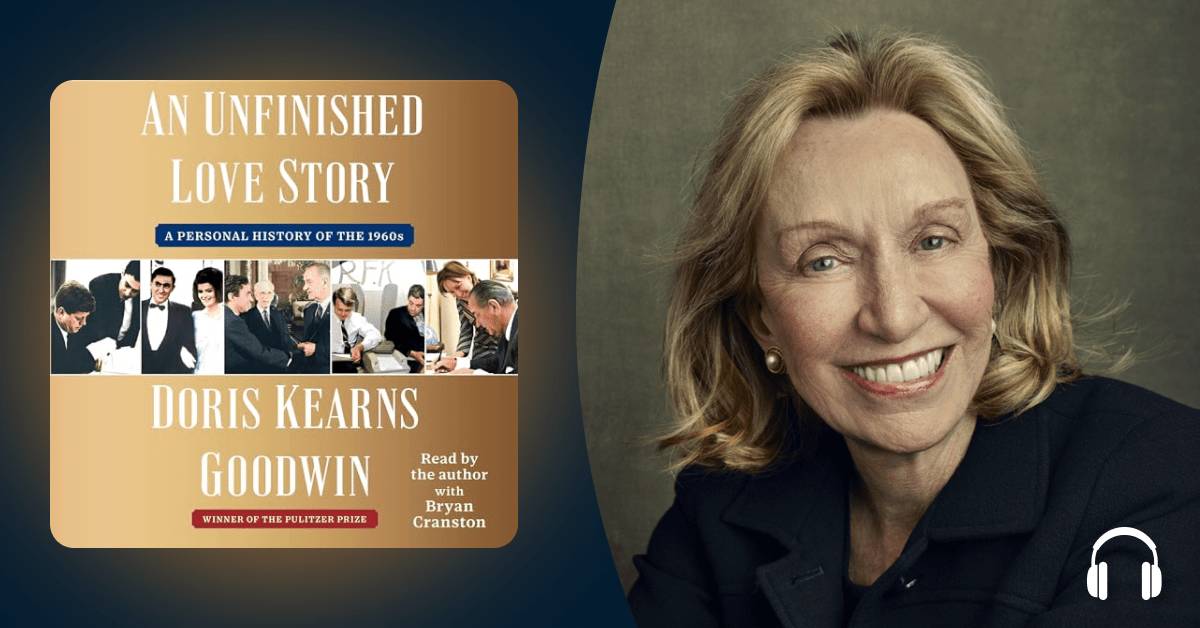Note: Text has been edited and dos not match audio exactly
Yvonne Durant: Hello, listeners. Editor Yvonne Durant here. Today, I'm going to speak to a very special person, the Deesha Dyer, about her very special memoir, Undiplomatic: How My Attitude Created the Best Kind of Trouble. Hey, Deesha. It's been a moment.
Deesha Dyer: Hey, how are you?
YD: I'm well.
DD: So good to talk to you.
YD: Very well. By the way, listeners, I met Deesha when she was working at the Ford Foundation. And we used to see each other at various events. I'm so happy to see you. It must be a really exciting time for you. How are you feeling? Tell me everything in three words.
DD: Anxious, inspired, and accomplished is how I feel. I lead with anxious, because this process, obviously, is a lot and when you've never done it before. But I'm trying to lean more into the inspired and accomplished part of that.
YD: Yes. I suggest you do. You can do it. I listened to your book, and you did a really nice job on the narration. How was that for you?
DD: It was great. I mean, I felt as if I was narrating almost someone else's story, because I was reading it out loud for the first time. We had to pause at some parts that were emotional, which really kind of I think says a lot about the work I put into it and the life I lived and hopefully what readers and listeners will get out of it.
YD: Right. On the subject of doing a great job, it seems to me that it comes naturally to you. You're thorough, detail-oriented, congenial, buttoned up. I can go on and on because I've been in your company before. Although we haven't worked together, I've seen how you operate. So, the imposter syndrome was a plus for you in a way in that I think you worked harder to prove that "I am somebody, and I belong here." Am I right or wrong?
DD: You are completely correct. I think I definitely worked super hard to prove I needed to be there versus just allowing my work to speak to the fact that I deserve to be there, which was a lot of extra effort. And I believe wasted effort, focusing on those parts of me that I felt were insecure or from my past or other things versus just enjoying my work and what I did. I think I put a lot extra on it because of that.
"I've always had a really great community, but even then, I think that a community can only do so much if you don't do things for yourself and your own mindset."
YD: I don't think you're alone in that. So, feel much better. Do you think the imposter syndrome affects Black men and women more?
DD: Yeah. I would say, honestly, I think it affects anyone who's been discounted in society more. So not just Black men and women but also those from the LGBTQ+ community, those with disabilities. I think anything that is kind of like an addition to your identity that has been historically oppressed in some way, I feel like it affects those folks more. And, you know, I'm included in that by being a woman and being Black. So, yes.
YD: And also I wonder if the support systems vary. And they're different for different people, although you seem to have the support of family. I know some of your friends. You have a great circle of friends.
DD: Yeah, I do. I do. I'm very lucky and very blessed that no one around me ever thought that I wasn't capable. I think that they thought something was wrong with me for thinking I wasn't capable [laughs]. For the most part, I've always had a really great community, but even then, I think that a community can only do so much if you don't do things for yourself and your own mindset. So even though I was surrounded by great people and great things and great jobs, great bosses, as you know one of them former, I still was like, “There's still something missing.” And so, thankfully, the community didn't let me slip too far. I think I negative self-talked myself before anybody else did.
YD: Better you than them.
DD: Yes, exactly [laughing].
YD: You sought therapy, something that, to me, in my own opinion, Black people don't do enough of, for good reason. Let's start with the expense and that silly belief that it's something white people do. At what point did you realize it's time for me to make that call and talk to someone else outside of my circle of family and friends?
DD: What I'll say is, before I answer that question, going back to what you said, I think a lot of it also has to do with religion. And a lot of us were raised in very religious homes, which wasn't always a negative, but that was the answer for everything: You pray. You go to God. So, when therapy was kind of introduced, I think it was kind of people saw it as a betrayal to the church or betrayal to God, or we didn't trust God. So, a lot of Black people still have that thinking. But thankfully it's opened up a little bit where there are churches and stuff that actually offer therapy and whatnot. The one I go to, I used to go to when I lived in New York, which I miss, in Brooklyn, actually does that.
But what I would say is it was time for me to go once I realized that my physical health was really being affected, once the high blood pressure, the pre-diabetes—as we know is also genetic—but the pre-diabetes, just the eating, just using things as substitutes. I would say that I had a lot of healthy addictions, I would say legal addictions, is what I would say. But I think that I had to go to someone because I was like, "I can't live like this for the rest of my life. It's torture.” It's torture to constantly think that I'm not qualified, or it was torture to walk into a space and just feel like I have to shrink or I have to be so big that people are scared or so small that nobody sees me. And it started to affect my health in a way that I couldn't deny it anymore.
I'll be honest, when I went, I was like, "All right. Four sessions. Let's go. Like, that's it. You gonna fix this, right? You gonna fix this and I'm gonna walk out and we gonna be good. Thank you for your service,” and move on. And that wasn't the case [laughs]. So, I had to actually invest in it and actually be intentional and do the work myself, which is still hard, but I do it.
YD: When you were in the White House, I imagine that the stress went up way high. I mean, how did you feel? I know that it was exciting. I'm still thinking about when you sat down in front of Michelle Obama for your interview. Were you shaking?
DD: I mean, yes, yes, Yvonne, yes! I was shaking. I was sweating. I was, you know, everything was sweating. So I just had paper towels under my armpits. I mean, it was a lot. And I think I was scared, but I also was just like, "This is what I have to do, right?” I'm either going to get in front of her and word vomit, like babble. Or I'm going to get in front of her and be concise. Or a combination of. Which, I think I did a combination of. But the opportunity to sit in front of—that was my second time interviewing with her, when I became social secretary, my second interview after the deputy that I did a couple years before. And she's such an amazing, smart woman that I thought of everything she could ask. I was like, "I got the answer. I'm all ready. I practiced." And then she asks the things that you didn't rehearse, and you're like, "Ahh! Like, the one thing…”
It was a lot of nerves, because she's Black, she sees me as I am, like we have that code where we can see each other. So it was like, I can't sit here and fake it until you make it out here [laughs]. Like, she gonna see that. So I got to be myself. And so I was very nervous. But ultimately, it proved to be a great interview, obviously.
YD: What made her say to you to handle this job or do this job, you have to be confident? Had you said something or she was just ticking off the list of “this is what you're going to need to do this job”?
DD: I think that part of it was that, I mean, she's a Black woman. And she's a smart, amazing, accomplished Black woman. So, she's been through, and she talks about in her books, the different times where she's felt like, "I don't belong here. I’m not qualified,” and all these things, especially going to an Ivy League school. And she talks about all of that. And so I think that she is familiar with the feeling, right? And so I think that she knows that probably a lot of Black women feel this.
"It was torture to walk into a space and just feel like I have to shrink or I have to be so big that people are scared or so small that nobody sees me. And it started to affect my health in a way that I couldn't deny it anymore."
And so I think that was number one. I think that she also observed me in different environments. I would say something, then give a “but.” You know, “I think it's a good idea, but I can understand if you all don't like it.” I think that there were times where I wasn't strong in my voice or my opinion or I would walk around just maybe not looking confident with my head down or I would try to stay out the room. And the interesting thing is I did that because I was like, "I don't know if I belong in this room, so I'm going to stay outside of it because I don't want to be embarrassed going in and somebody being like, ‘You don't belong here,’” right? Like, that never happened. But I think that she observed that. And I think that was really probably one of the main reasons why she asked that question.
But I think the other part was, too, is that it's a public job. It's so public. So, I think part of it was also looking out for me and not wanting me to crumble or not wanting me to think that I wasn't worthy. So, I think that she had to ask that question in order to gauge whether I would be okay.
YD: I have to tell you, you made me laugh, you didn't mean to, but it was very funny when the president approached you on the plane. “Oh, I didn't know we had interns on the plane.” And you said "Should I jump off?" or something.
DD: Oh my gosh. Oh my gosh. I'm so embarrassed. And I feel like they're also so smart, both of them. And I always felt like whatever I say is not going to sound smart. And then that just came out of my mouth. And I was also extremely sleep-deprived. It was very emotional, the event that we were flying back from. And I still think about to this day, like, “I'm surprised they hired me back after I was like, ‘I'll jump out the plane’” [Laughs]. Like, who says that? Who says that? It was unbelievable. Unbelievable.
YD: He probably didn't even hear it. I bet you he didn't even hear it.
DD: No. Didn't hear, probably. And also, he's the president of the United States. Like, surely he's not being like, "Let's talk about this girl who just said..." You know what I mean? In my head, I'm like, "Oh my gosh, this is all everybody's going to talk about." Like, I was an intern. Girl, calm yourself, ain’t nobody talking about that [laughs].
YD: Sounds like confidence to me. By the way, the day the pope arrived, and you were going through your thing. You know, I'm the mystery and thriller editor, so I listen to a lot of mysteries and thrillers. That day felt like a thriller for me, what you were going through, running around, the dress. By the way, I need that paper towel under your arm tip. I loved when the dress ripped or something, you felt some air and you shouldn’t have been feeling air [laughs].
DD: Yes, yes. Oh my gosh. I will tell you, that was a nightmare because I was so particular about my dress because we had to make sure our clothing was appropriate, as it should be when you welcome a pope. I was covered in my elbows and my knees. And I found this very beautiful dress and I was so excited about it. So when it ripped, I was like, "You’ve got to be kidding me." I didn't have a backup. So I was like, "Oh my gosh. What am I going to do?" And so being sewed up in the dress, which I need to check, I think that stitching is still there. I got sewed up in the dress. And then the whole time being like, "Keep your arm down. Keep your arm down," not only for sweat but also because I didn't want it to rip again. It was just that whole thing. I can't believe that all happened. It was nuts. It was just nuts, everything.
YD: I don't know if you ever had a typical day. What would a typical day be like? Say, if you didn't sleep in the White House and you slept in your apartment, what would that be?
DD: Yeah, there were no typical days. You are correct. A lot of days, most days, I got into work around 9:00, 9:30. So I never had to be in at the crack of dawn unless we had an event that was really early or there was a big day going on. So, I was very lucky, again 9:00, 9:30, and start with team meetings with the social office, which was six people in our office. And then we would just go into planning meetings. We planned months out. So, the events that are happening that week, we would go over. Then the events happening in the month, and then two months or three months. We would kind of go three months out.
And it would be everything from sitting down with the resident staff, which are the chefs and the florist and the butlers and the ushers, around what are we going to serve, what does the table decor look like, how many guests, what kind of chairs, what kind of china. We would go through all of that for every single event. Secret service. What time did the doors open. We're going to clear everybody at this time. So, we would go through all those details. And then we would prepare memos to send to the president and first lady to see if they were okay with everything. Are they okay with this china or this food or this guest list or whatever.
So that was the majority of the day, honestly, which would take me till like 5:00 or 6:00, when I would leave. But a lot of times, especially towards the end, when we knew that we would not have the White House as our event venue anymore, we wanted to make the most out of it. We had two, three events a day. So, it was very much going in early, preparing for an event, getting ready, getting the coat check open, getting the person down by the gate that brings people in, make sure the state floor had the bars ready, make sure the chairs were ready, the podium. Then we would be in touch with the West Wing over when the president would walk over. And then the press, when the press would come over, and his speech.
And it would be just automatic. Everybody had a role to do. That's the thing at the White House. Everyone just had to do their job. And, thankfully, everyone did to come together to make these amazing events. I mean, it wasn't just me. It was obviously a whole team.And so those days would end kind of late. Sometimes you would have events go until 8 or 9 o’clock. And state dinners, we wouldn't get home until midnight. Those were the days. Most of it was spent planning, typing up memos and being in meetings.
YD: Has any of this, the china, the flowers, spilled off in your personal life? I mean, you just don't slap anything on the table, do you?
DD: No. But I was like that before. I loved doing convenings and community events before. Even in 2009 for inauguration, when I was not in the Obama world yet, I threw a big brunch at my house, at my apartment in West Philly with my ex-boyfriend. And it was just like everybody came and we made food and we had drinks and we all watched the inauguration on TV and the swearing in. So, I've always been a gatherer. Like, I've always gathered people in community. And this wasn't really any different. The stakes were obviously higher. So, I'm still the same way.
"I want people to feel something when they come to my events...not just have a good time. Have a good time, too, but feel something."
I just threw a dinner for Audre Lord's 90th birthday with other Black women writers. And it's always a chill affair. It's not too fancy. But, you know, had the same elements of, like, I had cards on the table, Audre Lord quotes. And I had cookies and I gave everybody a plant to grow on. And we did a puzzle. It was a lot. But I love those kind of community things because, to me, it shows just how important it is to gather, because I would say with COVID, we were all separated, and we were so happy to come back together. I take a group picture every time, every time. You've probably been in some of my group pictures when I worked at Ford because I'm like, "This time, everybody came together at this time. They thought it was the most important place to be, was together right now.” I don't know when that's going to happen again. So, I am very intentional, down to my wedding.
YD: I bet that was some kind of wedding.
DD: Yeah. It was. I did the works. I had everybody who was there who was married, I got all their wedding pictures. And we displayed all their wedding pictures. And it's that kind of intention of people going and seeing like—from people who married in 1952 to people who married last year—they were just like, "Oh my gosh, I haven't seen my wedding picture in years. Oh, my goodness, I can't believe it's printed out for the people who got married before we started printing photos out." So that's the kind of level of detail, because I want people to feel something when they come to my events and my things, not just have a good time. Have a good time, too, but feel something.
YD: Did you invite the president and first lady to your wedding?
DD: I did. I did out of formality. I did because I was like, they mean a lot to me, I don't want to not invite them. But I knew they weren't going to come, which was fine. I think that part of it too is, you know, they always say, “When we come somewhere, we become the center. And weddings are not our time.” So, they sent greetings and love, but they did not attend, but I did invite them.
YD: Right. Right. By the way, I was very entertained by the Tiffany scene [when Mrs. Trump presented a gift, which was not protocol].
DD: Oh my gosh.
YD: I'm not going to give it away to listeners, but I just watched it. And I said, “That is so not with protocol. Who does that?”
DD: I mean, you bring gifts, and you notify people that you're bringing the gift. Everything at the White House is calculated. So, I think when Mrs. Trump brought this gift, it was kind of on camera, mind you, it was like, no. This was like we had a press, and it was already so contentious that morning. And it was just like, "Are you kidding me," because the first thing I think is, "Did they tell me this and I forgot?" And I'm like, "No, they never told me this.” I would have remembered that we're having a gift, so we could prepare for somebody to take it, so then the official photos could happen. I mean, that was kind of like the cherry on the cake. Like, we gotta go.
YD: Wow. And then you flew to California. That must have been wonderful. What an honor to be a part of their crew.
DD: Yes. Air Force One takes the outgoing president and first lady home, which we went. But the president and first lady went to California because they wanted sunshine and relaxation, and Chicago's cold in the winter. So, they take staffers with them, and I got to go. And it was such an honor. You just go and you fly on the plane with them. You say goodbye, and you fly back. You don't stay in California. You fly back. It was emotional. It was hard. It was unbelievable when we landed in California. There was no big team to greet them. They got in a sedan with Secret Service and left. And it was no fanfare. It was very interesting.
YD: Yeah, because we're so used to seeing that. But behind the scenes, I guess life goes on, right?
DD: Life goes on. I was happy for them that they got to have a good time with the four of them and just go and relax. Like, so deserving.
YD: By the way, seems like your husband, you two make a good team. He even worked with you at one point. What's his name? Wes?
DD: My husband is Wes. Yes. He does work for the business. He still does here and there. He is a great help with the business. I would say it's not an ideal situation to work with your spouse, to me. We work well together because he works on the payroll part of it all, the taxes and some stuff. And then I work on the front load. But he only does it part-time. He's a good help. But I think that we need a bigger team if we were to work together. I'm not sure [laughs]. That's a lot.
YD: But anyway, Deesha, you have memories that no one will ever rob you of and great moments. And it's keep on going up and up and up. And thanks for being so diplomatic. You have a great attitude. When anyone accuses you of attitude, say thank you.
DD: I do now. Now I embrace it. Thank you so much. It was so good to be in conversation with you.
YD: Same here. Thank you for taking the time. Listeners, you can find Undiplomatic: How My Attitude Created the Best Kind of Trouble on Audible.
